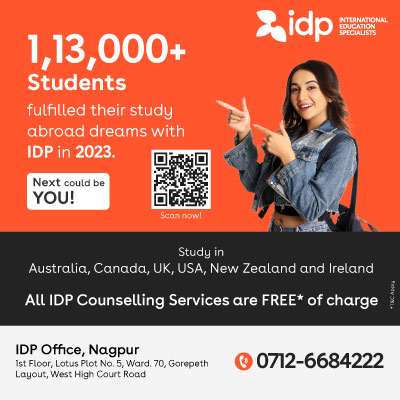 The white elephant (OCW) tortured Nagpur citizens in every possible way. Irregular, and sometimes no water supply at all in the midst of scorching summer. The OCW, not satisfied by harassing citizens on water supply front, hiked the water tariff fivefold thus hitting the consumers where it pained most.
The white elephant (OCW) tortured Nagpur citizens in every possible way. Irregular, and sometimes no water supply at all in the midst of scorching summer. The OCW, not satisfied by harassing citizens on water supply front, hiked the water tariff fivefold thus hitting the consumers where it pained most.
Nagpur News: The National Platform Against Water Privatisation (NPAWP) has come down heavily on Nagpur Municipal Corporation (NMC) for water privatization in the name of 24×7 water supply to Nagpur under JNNURM scheme. The NMC had given contract first to French Company in 2007. The 24×7 scheme was launched in Dharampeth Zone on an experimental basis. According to the agreement, the scheme was to be formally implemented in2009. And after the success of the 24×7 scheme in Dharampeth Zone, the scheme was to be launched across the Nagpur.
However, the ground reality is totally contradictory. The NPAWP observed that even after five years the scheme was not implemented 100 per cent. Moreover, NMC hurried announced launching of 24×7 scheme in the entire Nagpur without giving a thought that the scheme would come a cropper despite a flawed success story. The French Company utterly failed in Dharampeth Zone itself in the 24×7 scheme, and, now the Orange City Water Limited (OCW) has proved itself a white elephant.
The white elephant tortured Nagpur citizens in every possible way. Irregular, and sometimes no water supply at all in the midst of scorching summer. The OCW, not satisfied by harassing citizens on water supply front, hiked the water tariff fivefold thus hitting the consumers where it pained most. The NMC is now finding itself in bankruptcy. The most shameful aspect of NMC’s 24×7 scheme, a total failure, is being implemented across the country giving Nagpur’s “successful” example.
Recently, many struggling workers’ unions, social organizations and groups of citizens came together in a national-level meeting in Nagpur and formed the National Platform Against Water Privatisation on June 30 to vociferously protest water privatization. The NPAWP includes representatives from Maharashtra, Delhi, Madhya Pradesh, Karnataka, Uttar Pradesh, Haryana, Assam, apart from various Nagpur’s organizations. In its first meeting, the NPAWP discussed 24×7 schemes and put following demands:
1) Immediate cancellation of agreement with OCW
2) NMC should itself handle water supply through Water Works Department
3) Strengthening of Water Works Department for smooth supply of water
4) All works to NMC’s permit-holder plumbers
5) Regularisation of all contract workers deployed water arrangements
6) A detailed investigation into OCW’s financial irregularities
The natural, pious definition of water
Water is life! It belongs to the earth and all species for all time. It is an inalienable human right and a public trust to be protected and nurtured by all peoples, communities and nations. We, the people of India who are involved in social movements and committed to fighting for the right to water to all human beings also define our rivers as a life line and the spiritual heritage of the people. Therefore Water is our most precious common resource and is essential to all life.
TheNational Platform Against Water Privatization’s primary objective is to stop the corporate theft of our water and to protect our right over water as a public good. We strongly believe that water is not a commodity and must not be left to the whims of the market because no person or entity has the right to profit from it. Water must not, therefore, be commodified, privatized, traded or exported for commercial gain. We commit to work together with all those groups who fight for right to water and we would work as a collective to liberate water from corporate and private agencies control and return it to the people for common good. We the people of India will not allow our water to be made a commodity for profit and will make every effort to ensure universal access to clean and safe water. Water must be available, accessible, affordable and acceptable for every Indians and the national and state governments are responsible to make sure water services is delivered to all. That was agreed upon by the United Nations General Assembly Resolution of 28 June 2010 and the Indian government as primary signatory to this resolution, must implement these rights, and not leave these services to market forces.
We, the people, are the natural protectors and sustainable users of water not its customers. Our collective concern is that “Water is a public good and it should remain in public hands and no control over water is applied through public private partnership (PPP) in drinking water supply and distribution, diversion of rivers, building dams or mining of waters”. We therefore need to work together to influence our governments that no rivers are diverted by the rivers linking project, nor are they destroyed by large dams which displace people from their land, their water, their culture and habitat. The NPAWP would seek strength from each other at this time when democratic governments in the States have been sold out to the private corporations and are granting them licenses almost free of charge to draw precious water resources from rivers, canals and aquifers for bottled water, mines, huge real estate projects, private cities and Special Economic Zones (SEZ) and industrial units. Therefore, the NPAWP would also strive to work on other aspects of water, such as building alternatives, conservation, river basins or water in the context of climate change or policy issues. However, the fight against any form of water privatization will be the key agenda of the national platform. The NPAWP would also work for formulating and implementing peoples’ vision of sustainable and equitable water management.
Water, as a public trust and an inalienable human right, must be controlled by the people and communities that rely on it for their lives and livelihoods. All the water resources should be owned, controlled, managed and utilized by local communities in their natural setting. The management of water services must not only remain in public hands, but must be revitalized and strengthened to make community and worker participation central in order to democratize decision-making processes and ensure transparency and accountability. This participation must be extended to all levels of decision making pertaining to water resources.























